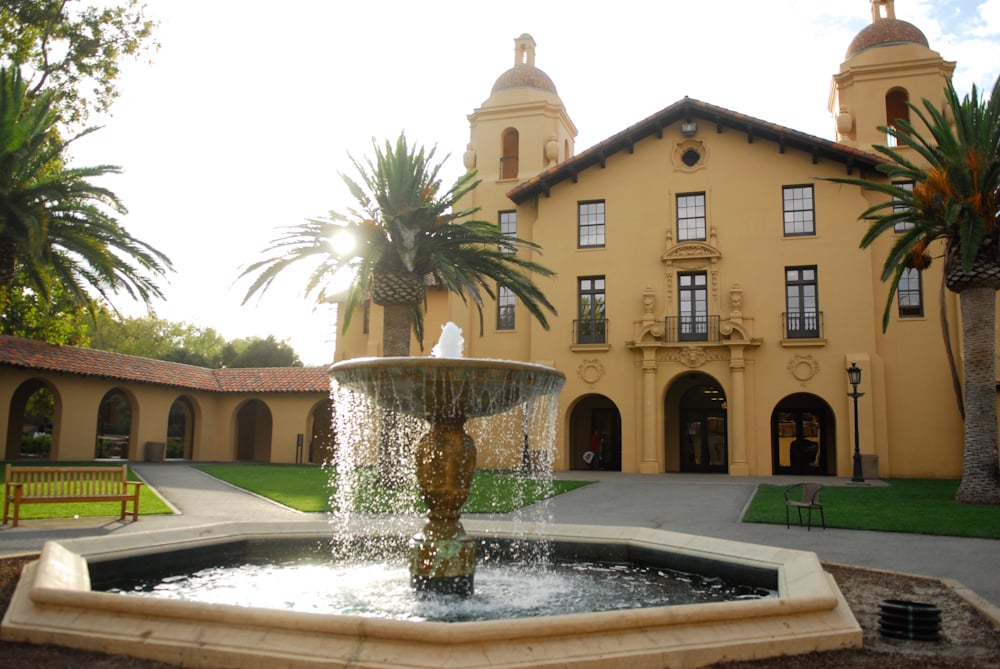Stanford College Republicans (SCR) has endorsed more than 20 candidates for political office this year.
These endorsements were made on the group’s Facebook page despite the fact that “using a student organization name to endorse a candidate” was included on a list of “prohibited political activities” on Stanford’s Student Activities and Leadership (SAL) website from the start of SCR’s endorsement campaign until September.
“Our policy prohibits individuals, departments or student organizations from making endorsements in the name of Stanford University and when using university resources such as space, funding, computing resources or others,” wrote SAL director Nanci Howe in an email to The Daily.
That student organizations violate this policy only if they use University resources when making endorsements is a nuance absent from the list on SAL’s website.
The policy hinges on the University’s 501(c)(3) status; as a nonprofit, Stanford is limited in its ability to partake in partisan political activity because of federal tax codes. These restrictions extend to candidate endorsements.
The first SCR endorsement was for Texas Senator Ted Cruz on May 11, and the most recent was for Florida gubernatorial candidate Ron DeSantis on Aug. 15.
Although the posts explicitly endorsed candidates and were made public under SCR’s name — ostensibly in violation of the SAL rule — Howe said the group has not violated policy.
“We see this endorsement as one that represents the opinions of the student members of the Stanford College Republicans and not the university,” Howe wrote. “Further, given that Facebook is not affiliated with Stanford University, we do not believe university resources are being used.”
Howe wrote in August that the University is working to correct this “inconsistency” between SAL’s actual policy and the policy listed online, but the policy listed online did not change until the week of Sept. 24-28.
In the change, the prohibited political activity of “Using a student organization name to endorse a candidate” was changed to “Using a student organization name to endorse a candidate while using University resources. (To be permissible, it must be clear that the endorsement represents the views of the students and not the University).”
Furthermore, the permitted political activity of “Anything done as individuals (e.g., working for campaigns, endorsements, etc.)” was changed to “Anything done as individuals (e.g., working for campaigns, endorsements (when it is clear the endorsement is made on behalf of the individual(s) and not the University), etc.).”
Other political groups on campus indicated they were vexed by SCR’s flexibility in making endorsements.
Stanford Democrats President and three-term Undergraduate Senator Gabe Rosen ’19 wrote in a statement to The Daily that — based on the University policies presented online — he believed the Stanford Democrats could not endorse candidates for political office.
“It’s frustrating to hear that SAL appears to be suddenly changing its policies on partisan activities while claiming that the new policies have always been in effect,” Rosen wrote. “The Stanford Democrats have been complying with the old policies for a while now. If the new policies have always been in effect then we’ve been unfairly prevented from expressing our political preferences to the fullest extent possible, while other groups seem to have been afforded those same opportunities.”
If student groups are now able to endorse candidates so long as they are not using University resources to do so, the practice may transcend partisan organizations. Issue-focused groups could use endorsements as a mechanism of advancing their respective causes.
SCR leaders have not responded to The Daily’s repeated requests for comment.
Although the University has permitted SCR’s political endorsements, it is unclear whether The California College Republicans (CCR) — the overarching organization under which SCR is a chapter — allows its subsidiaries to independently endorse candidates for political office. SCR’s peer chapters do not appear to have issued endorsements on their Facebook pages, though most organizations’ social media presences have been far more limited than SCR’s over the summer.
CCR did not respond to The Daily’s request for comment.
SCR has been subject to aspects of this policy in the past. In May 2016, the organization was denied Undergraduate Senate travel subsidies due to concerns over the Senate funding partisan activity.
This policy is not always standard practice among Stanford’s peer institutions. Yale holds policies that clearly differentiate student organizations’ activity from University action, but say nothing to restrict partisan political action.
This post has been updated to reflect changes to the “Partisan Political Activities” page on the University website.
Contact Holden Foreman at hs4man21 ‘at’ stanford.edu.
